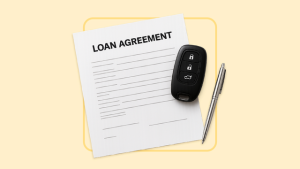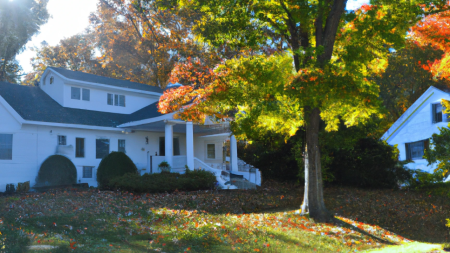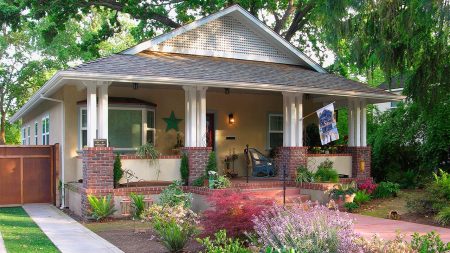Key takeaways
- Both investment property and second home mortgages are harder to qualify for than a loan for a primary residence.
- Lenders tend to have stricter criteria for investment property mortgages than for second home mortgages.
- The amount of time you’ll personally use the property — whether it’s more or less than 14 days — determines how it’s classified for taxes, and thus for a mortgage loan.
Owning more than one property is an enviable position to be in, but how you classify that property makes a difference in how much you’ll pay to finance and own it.
When determining whether to buy a second home vs. an investment property — and how to classify a home for a loan application — this is what you need to know.
What’s the difference between a second home and an investment property?
Fundamentally, the difference between a second home and an investment property comes down to how you plan to use the house.
- Second home: A second home is an additional residence — one you purchase for personal use and enjoyment and live in or visit during part of the year.
- Investment property: An investment property is one you plan to rent out with the goal of generating income.
Of course, a property can serve both purposes. That’s true especially if you’re thinking about renting out the property when you don’t want to use it. To formally differentiate between a rental property vs. second home, you’ll need to apply “the 14-day limit rule,” says CFP Elliot Pepper, co-founder and director of tax services at Northbrook Financial, a Baltimore financial planning firm.
“Broadly speaking, if you personally live in your second home for 14 days or fewer — or less than 10 percent of the days it is rented — during a year, then it would be considered a rental property,” Pepper says.
Some lenders may also require that a second home be at least 50 miles from your primary residence, while there’s no distance requirement for rental properties.
Second home vs. investment property mortgage requirements
Making the distinction between a second home vs. investment property is important from the time you apply for a mortgage. Lenders have different requirements for borrowers seeking investment properties than for those buying second homes.
| Second home lender requirements | Investment property lender requirements | |
|---|---|---|
| Minimum credit score | 620-680 or higher | 700 or higher |
| Minimum down payment | 5%-10% | 15%-25% or more |
| Maximum debt-to-income (DTI) ratio | 45% | 45% |
Both types of properties are riskier prospects for lenders than a primary residence. That’s because if you were in a financial bind, you’d likely prioritize paying the mortgage on your main home versus a second or investment property.
Due to this added risk, lenders tend to require higher credit scores and down payments on investment property and second home mortgages. For instance, Chase and Navy Federal Credit Union both require a 15 percent down payment for an investment property — in contrast to 3-5 percent for primary residences.
Second home vs. investment property tax implications
There are some tax rules to keep in mind when considering a vacation home vs. an investment property.
| Second home | Investment property | |
|---|---|---|
| Mortgage interest | Deductible up to the $750,000 combined total debt limit for your first and second home | Fully deductible as a business expense |
| Rental income | Not taxable as income, but the house must be rented 14 or fewer days a year | Taxable as income |
| Deduction of expenses like property taxes, depreciation, maintenance, etc. | Non-deductible | Deductible, and can help to offset income from the property |
Homeowners can deduct mortgage interest, but Pepper points out that this can get tricky if you own a second home, due to the $750,000 total loan limit for interest deductions. If you have more than $750,000 in mortgage debt between the two — or more — properties, you’ve maxed out the amount you can use to deduct interest.
Interest paid on a mortgage for an investment property, as well as other ownership expenses, on the other hand, are deductible, Pepper says, “and can therefore be used to offset any income generated from the property” — which is taxable.
For a personal residence, while you won’t pay taxes on income you earn from rentals, you also can’t deduct expenses like maintenance and depreciation.
For more on the tax implications of second homes and investment properties so that you can calculate your eligibility for tax deductions, review IRS Publication 936 and Publication 527.
If you personally live in your second home for 14 days or fewer — or less than 10% of the days it is rented — during a year, then it would be considered a rental property.
— Elliot Pepper, co-founder, Northbrook Financial
Mortgage rates for second home vs. investment property loans
As they have for primary residences, mortgage rates for second homes and investment properties have increased in recent years from their COVID-era lows. Because lenders view them as higher-risk, you’ll also pay higher rates, in general, for investment properties and second homes than you will on a loan for a primary residence.
And between second homes and investment properties, Pepper says, “In my experience, if the bank knows the property is going to be used for investment purposes, it’s going to have a higher interest rate.”
The good news is that mortgage rates have been trending downward since the beginning of 2025. The Fed is also expected to cut its benchmark rate later this year, which could help bring mortgage rates down further.
Learn more:
Second home vs. investment property insurance
Whether you have a second home or an investment property, you’ll need to get coverage beyond your existing homeowners insurance policy.
Your vacation home insurance policy will probably look quite similar to the policy you have on your primary residence, but it may need additional elements. For example, if your vacation home is in an area that’s prone to flooding, you may need flood insurance. If the house will be vacant for extended periods of time, you might need a rider to cover the added risks there, too.
To insure an investment property, turn to a landlord policy. Find out if each policy you’re considering covers loss of use, which pays out missed rent payments if your home is uninhabitable due to a covered loss. You might also consider an umbrella policy to cover your personal liability. And if you’re going to have long-term renters, they should have a personal renters insurance policy to cover their own property.
If, on the other hand, you’re considering renting your home using a service like Airbnb or VRBO, short-term rental insurance might be a better fit.
Whether you go for a rental property or second home, insurance providers see both as riskier than a primary residence. As a result, your insurance is going to cost more than a standard homeowners insurance policy.
FAQ
Read the full article here












